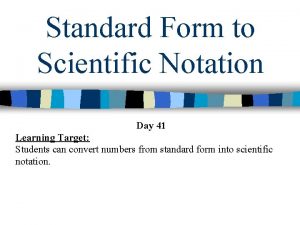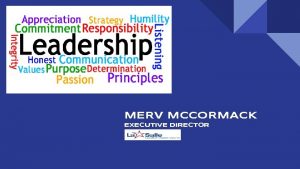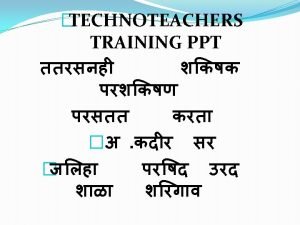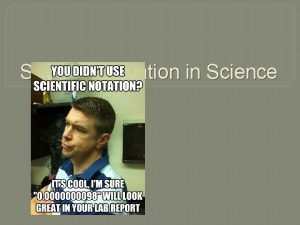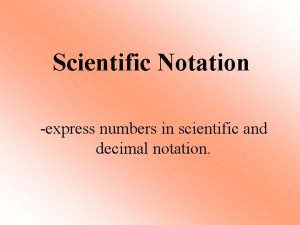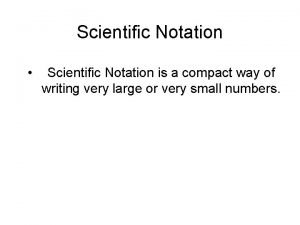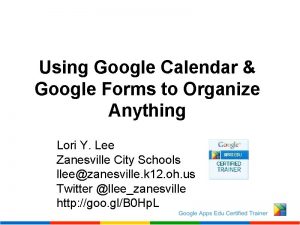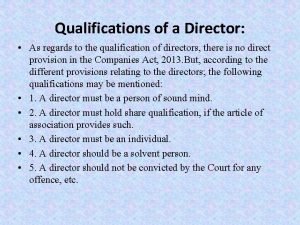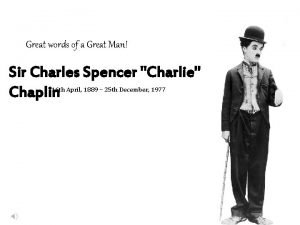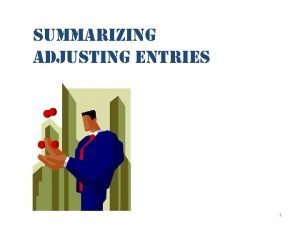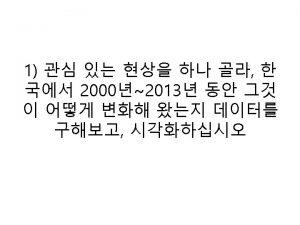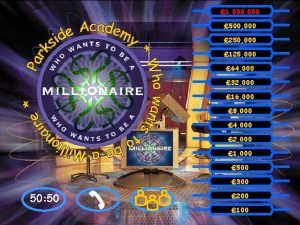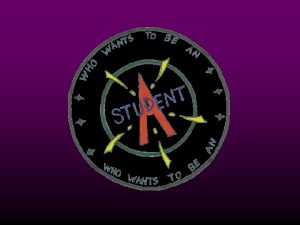MERV MCCORMACK EXECUTIVE DIRECTOR GOOGLE 15 000 entries





































- Slides: 37

MERV MCCORMACK EXECUTIVE DIRECTOR



➔ GOOGLE: 15, 000 entries LEADER ★ Visionary ★ Inspires ★ Focuses on People ★ Has Influence ★ Asks “Why” ★ Shows how it’s Done ★ Says “We” ★ Does the right thing MANAGER OR ★ Technical ★ Plans ★ Focuses on Systems ★ Has Authority ★ Asks ‘How’ and ‘When’ ★ Knows how it’s Done ★ Says “I” ★ Does things Right

Presence Relationship Influence LEADERSHIP

“If you want to lead a team, you need to enjoy working in one. Leading a team is about enjoying people and trying to get the best out of them. My job is to let them do their work to the best of their ability. ” Dr Kate Drummond, Head of Neurosurgery, Royal Melbourne Hospital


Leadership How would you rate yourself on the following: ➔ ➔ ➔ If the little things frustrate you, what does that say about your size? He was a leader determined to never let himself reveal any enthusiasm. I believe in being strong when everything is going wrong. His words were all mash and no fibre. She was in charge of morale. She was the distilled essence of a dynamic leader, someone who knew how to delegate, had the passion to inspire, even looked good in what she wore to work. She never professed to have greater skills than her subordinates. She acknowledged that they knew what they were doing in their domains. But she established the vision, the tone. She led morale. ➔ A leader is like a shepherd - he stays behind the flock, letting the most nimble go ahead, and the others will follow, not realising that all along they are being directed from behind. ➔ The heart comes first, then understanding.

A Framework for Leadership: (after Maj. Gen (Rtd) John Cantwell) The A Lane ❖ Authentic ❖ Accountable ❖ Accessible ❖ Seizes Advantage from Adversity ❖ Adaptable

A Framework for Leadership: (after Maj. Gen (Rtd) John Cantwell) The B Lane ❖ Big Ideas ❖ Builder ❖ Binder ❖ Breaker ❖ Bad Behaviour (deals with it)

A Framework for Leadership: (after Maj. Gen (Rtd) John Cantwell) The C Lane ❖ Communicates ❖ Cares (about people) ❖ Crafts (a compelling narrative) ❖ Cheers and Criticizes ❖ Crisis Leader

A Framework for Leadership: (after Maj. Gen (Rtd) John Cantwell) The D Lane ❖ Decisive ❖ Delegates ❖ Divides (& conquers) ❖ Defeat (deal with it) ❖ Death (to meetings)

A Framework for Leadership: (after Maj. Gen (Rtd) John Cantwell) The E Lane ❖ Connects Emotionally ❖ Embraces uncertainty ❖ Explains and Educates ❖ Keeps Evolving ❖ Encourages new leaders

Leaders have a Vision: ➔Where are we? ➔ Where do we want to be? ➔ How do we get there? There are Leaders who: ➔Make it happen ➔ Let it happen ➔ Wonder what happened …. . WHICH ONE ARE YOU?


The Leader: David Goleman’s Emotional Intelligence work ❖SELF-AWARE: the ability to recognise and understand your moods and emotions. ❖ SELF-REGULATOR: the ability to control disruptive impulses or moods. To think before acting. ❖ MOTIVATED: a passion to work for reasons beyond money, status, or holidays. ❖ EMPATHETIC: the ability to understand the emotional make-up of others. ❖ SOCIALLY SKILFUL: the ability to manage relationships and build networks. The ability to find common ground, and build rapport. ❖ AND DECISIVE: the ability to know ‘when to hold ‘em, and when to fold ‘em’.

David Goleman: “When I compared star performers with average ones in a senior leadership position, nearly 90% of the difference in their profiles was attributable to emotional intelligence factors rather than cognitive ones”.

Peter Drucker: “Of course, success in any job is impossible without the requisite technical or vocational skills. But whereas those skills alone might have once constituted a success formula, [leaders] today must also be able to assess their strengths, weaknesses, and how well their working style equips them…. In other words, they need to become self-aware. ”

And Leaders are Positive:

Leaders are Assertive not Aggressive:

Leaders are Decisive: ❖ ❖ “A leader must have the courage to act against an expert’s advice”. (James Callaghan) “The best executive is the one who has sense enough to pick good men to do what he wants done, and self-restraint to keep from meddling with them while they do it”. (Theodore Roosevelt) ❖ “First rule of leadership: everything is your fault”. Bug’s Life) (A

Leaders are Decisive:

Leaders Think First Before Acting:

Leaders are Decisive, but the Best Leaders are also Listeners:

Leaders are Socially Skillfull:

Sometimes they are Peacemakers:

Leaders are Socially Adept Dealing with Very Different Characters and Personalities:

Leaders Make Time to Know Their Team:


Leadership: It’s never more than a short walk in any direction to find someone who disagrees with your decision, or who envies or disapproves or wants to thwart, or who feels thwarted, threatened or misused.

Leaders need to Stay Strong when Things go Wrong:

Leaders Look at Various Options:

Leaders Need to be Resilient: ❖ “Remember, if you ever need a helping hand, it’s at the end of your arm”. (Audrey Hepburn) ❖ “Victory belongs to the most persevering”. (Napoleon)

Leaders Need to be Humble: ❖ “His favourite view in the world was the one in the mirror”. ❖ “He wasn’t actually piddling gold”. ❖ “If things fall apart, cling to the wreckage”.

It’s easy to have your hand on the tiller in calm seas. But much harder in stormy weather.

Some Concluding Thoughts: ❖ A lot of people, including some leaders, want a short cut. The best short cut is the long way, which is basically two words: WORK HARD. ❖ Whether you think you can, or think you can’t, you’re right. ❖ Your mind is your best friend, or your worst enemy. ❖ “Repeat after ‘we’”. ❖ “Leadership is a privilege”. Maj Gen. (Rtd) John Cantwell ❖ “We cannot leave things as they are. Let us be in a permanent state of mission. Let us transform everything. . . Let’s abandon [complacency], saying “We’ve always done it this way”. (Pope Francis)

And finally: “Smart, capable leaders who know their staff are wellrespected, but employees like and trust leaders who are only smart, but who occasionally lean back and laugh a own mistakes, and who are generous with what life has taught them. Don’t be afraid to show that you’re human too. ” Lou Soloman, Queen’s University of Charlotte
 What is 97 000 in scientific notation
What is 97 000 in scientific notation 602 200 000 000 000 000 000 000 in scientific notation
602 200 000 000 000 000 000 000 in scientific notation Merv mccormack
Merv mccormack 33 900 000 in scientific notation
33 900 000 in scientific notation 090-0000-0000
090-0000-0000 Zelfzorgtheorie van orem
Zelfzorgtheorie van orem Google google google
Google google google Mrs merv grazinski
Mrs merv grazinski 1,000 x 3,000
1,000 x 3,000 .01*100000000
.01*100000000 240 000
240 000 450 000 000 in scientific notation
450 000 000 in scientific notation 2,340,000,000
2,340,000,000 4 000 000
4 000 000 Cancion lemuriana
Cancion lemuriana 4 500 000
4 500 000 Scientific notation advantages
Scientific notation advantages What is 140 000 000 in scientific notation
What is 140 000 000 in scientific notation Proper scientific notation
Proper scientific notation 20000/12/2
20000/12/2 4 500 000
4 500 000 1-000-000-0000
1-000-000-0000 Pedipalpos quelados
Pedipalpos quelados Express 4,980,000, 000 in scientific notation
Express 4,980,000, 000 in scientific notation 1 600 000
1 600 000 000 111 000
000 111 000 4 500 000
4 500 000 Milli micro nano
Milli micro nano Frans cooijmans
Frans cooijmans What is 140 000 000 in scientific notation
What is 140 000 000 in scientific notation Https//scholar.google.com.br
Https//scholar.google.com.br Google docshttps://mail.google.com/mail/u/0/#inbox
Google docshttps://mail.google.com/mail/u/0/#inbox Google calendar google forms
Google calendar google forms Google earth google prevoditelj
Google earth google prevoditelj Orange county ems protocols
Orange county ems protocols Four main perspectives in multimedia authoring tools
Four main perspectives in multimedia authoring tools Qualification of a director
Qualification of a director English comic actor and film director
English comic actor and film director
